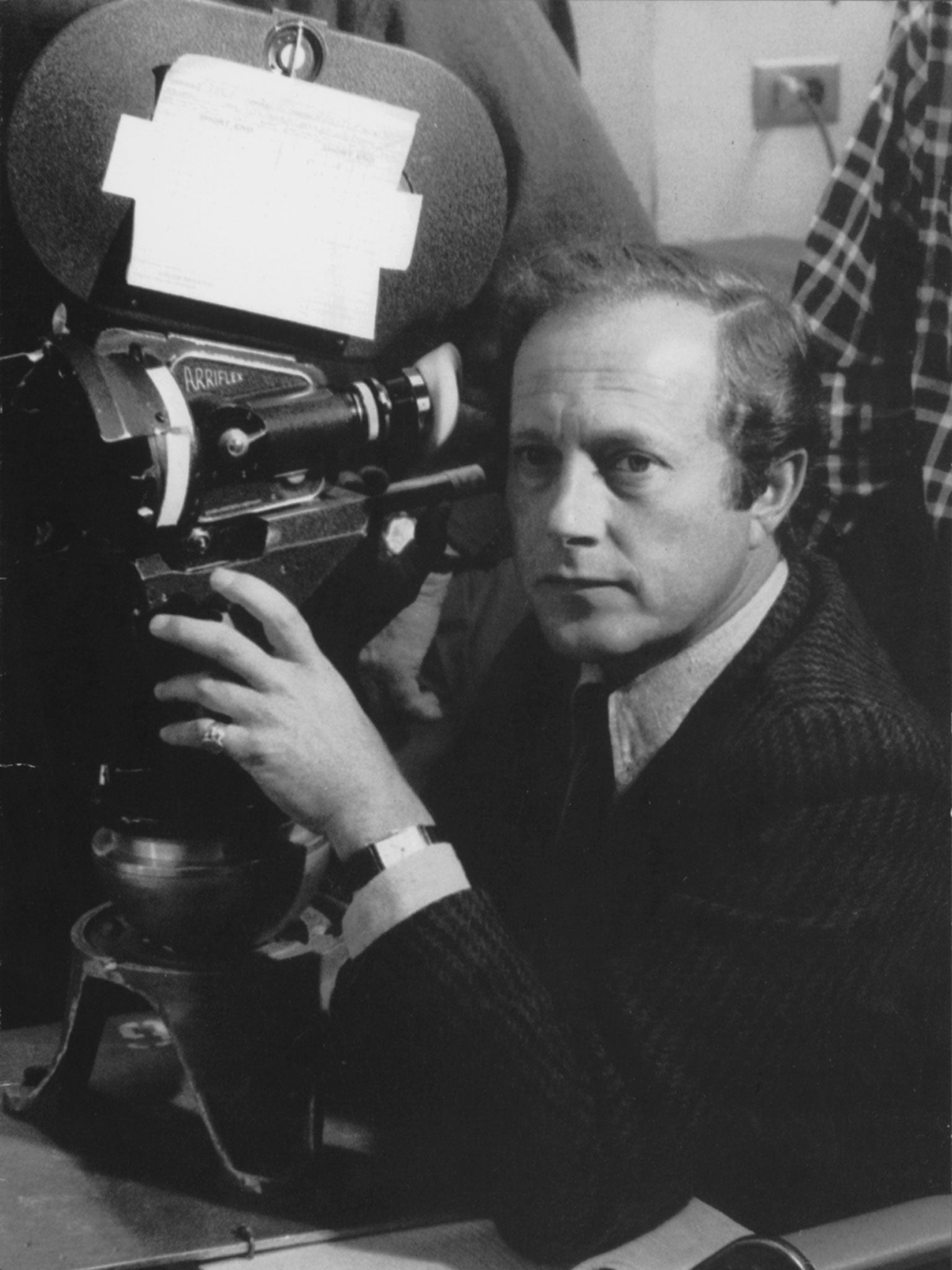Review: The World Is Ever Changing, By Nicolas Roeg
A lyrical, jumbled insight into the Picasso of British cinema

Your support helps us to tell the story
From reproductive rights to climate change to Big Tech, The Independent is on the ground when the story is developing. Whether it's investigating the financials of Elon Musk's pro-Trump PAC or producing our latest documentary, 'The A Word', which shines a light on the American women fighting for reproductive rights, we know how important it is to parse out the facts from the messaging.
At such a critical moment in US history, we need reporters on the ground. Your donation allows us to keep sending journalists to speak to both sides of the story.
The Independent is trusted by Americans across the entire political spectrum. And unlike many other quality news outlets, we choose not to lock Americans out of our reporting and analysis with paywalls. We believe quality journalism should be available to everyone, paid for by those who can afford it.
Your support makes all the difference.Nicolas Roeg's book isn't about his rise to fame as one of Britain's most distinctive film directors. Nor is it a confessional on the inner workings of the movie industry, or an exposé on the many stars – among them Mick Jagger, David Bowie and Julie Christie – with whom he has worked. In fact, it's possible that this isn't the tell-all that Roeg's publishers had in mind. It is, however, a gem that offers intriguing and often lyrical insight into the artist at work.
Described by Danny Boyle as "British film's Picasso", Roeg is famous for his fractured film-making style, at its most powerful – and challenging – in Performance (1970), Don't Look Now (1973) and The Man Who Fell To Earth (1976). The director, who is now 84, may like to tell stories but he doesn't care much for traditional storytelling. So it's only to be expected that The World Is Ever Changing is similarly unconventional, a jumble of thoughts, opinions and observations during which he zips back and forth between his early years as a camera operator's assistant and his movie directing heyday.
The chapters cover different areas of film-making – Sound, Script, Directing, Editing and so on – each allowing Roeg to expound on what he has discovered over 60 years in the business. Underpinning all this, he says, is the pursuit of truth – in a script or an actor's performance.
Roeg's writing style is modest, conversational, philosophical and yet full of conviction. This passion is evident in the prologue where he apologises for his disjointed prose while reflecting on "the magic of the captured moving image, that is for me the most magical ability I can think of. It has already, and still does, open doors of revelation which will finally show us the future".
The book's title is derived from a line in The Man Who Fell To Earth. "The world is ever changing, Mr Farnsworth, like the universe," says David Bowie's sad alien, underlining Roeg's own keen sense of life's fleeting nature. Indeed, progress is a recurring theme: "When they say there's a right way and a wrong way, it's tragically inhibiting. I always say there is a right way and another way – and that way is freedom."
There are plenty of anecdotes, among them David Lean walking into the desert to have a little cry as Lawrence of Arabia is wrapped up, and a curious exchange with the artist Jacob Epstein at a urinal.
Those looking for gossip will have to go elsewhere, however. The thrice-married Roeg is unfailingly discreet, and the closest we get to hearing about any mischief is in a letter from his pal, the writer Paul Theroux, mentioning the director's "reckless, impulsive, utterly necessary love affairs ... one of them with you naked in a hotel room with a famous actress and her crazed suitor outside banging on the door."
That The World Is Ever Changing is also available as an ebook, complete with clips from Roeg's films, is not only testament to the director's ability to move with the times but his fascination with the working methods of the future. It has been both his making and undoing. It took critics 20 years to appreciate Performance, now regarded by many as an avant-garde masterpiece. Roeg is not bitter, though. Here he writes like a man who can't believe his luck.
Faber and Faber £25. Order for £20.00 (free p&p) from the Independent Bookshop: 08430 600 030
Join our commenting forum
Join thought-provoking conversations, follow other Independent readers and see their replies
Comments